| |
Christmas
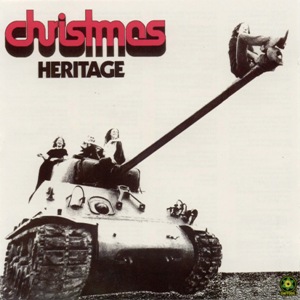
Heritage
Daffodil - 1970
Michael Panontin
|
"I wanted to find the best players in Oshawa and put together a total no-compromise, original psych band."
Bob Bryden had the bar set as high as possible when he formed Christmas. The post-psych band started up in the aftermath of the highly volatile Reign Ghost, which had actually imploded a couple of times in their brief existence. "When [Reign Ghost vocalist] Linda Squires joined the cast of Hair, I was free to form my own dream band," Bryden would tell On the A Side in 2016. "I had been watching players around Oshawa for a couple of years and I called together five guys to the coffee shop at Sears at the Oshawa Centre to have a meeting."
The result was a Grateful Dead-inspired psych group with one the longest names in the entire history of pop music: The Society For The Year-Round Preservation of the Spirit of Christmas, which would ultimately be shortened to the easier-to-remember but equally confusing Christmas. The six - singer/guitarist Bryden with guitarist Robert Bulger, bassist Tyler Raizenne, drummer Rich Richter, vocalist Gary Squires (Lynda's brother) and vocalist/tambourinist Wolfgang Hryciuk - first entered the studio for Jack Boswell's Paragon label with the initial intentions of making "a twelve top hits album". But with the tape decks running and the guys encouraged to jam away, the result was the uber-noodlefest that is their sprawling self-titled debut (which was issued without the band's approval and in a run so miniscule that the rarely traded disc can fetch upwards of $2700 USDs these days).
Heritage, the group's first proper release, is a whole other ball of wax.
For starters, Christmas sported a pared-down lineup and a new label. "After the first album was released, Gary Squires and Wolfgang Hryciuk soon departed," Bryden told CM. "As a four-man ensemble, we fielded some offers from a few record companies (MCA included) but within months of the two members' departure we went with the newly formed Daffodil Records."
Daffodil was enjoying its first taste of success with King Biscuit Boy with Crowbar's Official Music disc. The label was co-founded the year before by Frank Davies and rock journalist Ritchie Yorke - at the Playboy Club in London of all places - and the pair took an interest in Christmas right from the get-go. "Yorke and Davies immediately came out to Oshawa and sat awhile with us at our practice space barracks at the Oshawa airport," Bryden recalled. "We played for them a good full year's worth of repertoire including all the songs which made it to Heritage and many more."
Within weeks Bryden and the group found themselves in front of the mics at the now legendary Toronto Sound studios. "I barely had time to catch my breath - literally - because now suddenly I was the lead singer as well as main songwriter, rhythm guitarist and arranger. I had usually relegated much of the singing duties on my songs to Gary or Wolfie. Now I was the main man."
Heritage was recorded and mixed pretty quickly - "maybe ten days tops" ‒ and was in the shops just in time for, um, well, Christmas 1970. It also had the good, and as it turns out bad, fortune to have the hefty weight of Capitol Records behind it, as Bryden remembers. "Daffodil were distributed by Capitol and I remember being in their offices the day our album - and George Harrison's All Things Must Pass - were released. I recall the phones ringing off the hook with orders for George's LP and our album getting a little lost in that shuffle." It hardly helped matters that some clueless record shops occasionally misfiled the album in the holiday Xmas bins.
Those few who did give Heritage a spin back in the day would have encountered a barrage of heavy late-psychedelic blues riffs and proto-stoner rock, not unlike what local contemporaries the Churls, Warpig or Bent Wind were up to at the time. Bryden of course was still a teenager and his attempts at complex, multi-movement pieces - the sprawling thirteen-minute-plus 'Zephyr Song' is a good example - can seem both adventurous and unwieldy at the same time. His precocious young mind must have been a veritable stockpile of musical ideas. That said, the flashes of brilliance on Heritage, like the potent 'Point Blank' or the rollicking closer 'Heritage', with its heavy whiffs of smokin' Detroit rock, are thrilling, and nearly as good as anything out there that year.
Unfortunately, Bryden laments, Heritage slipped quickly into that proverbial quicksand of forgotten albums. "We also had two singles released. The second one, 'Point Blank', had the word 'goddamn' in it - which was actually bleeped on the single!! We had a gig at Massey Hall in Sept. 1971 opening up for Crowbar, and even that didn't accelerate our career. It seemed that the Canadian scene wasn't interested or ready for us."
Mintish originals of Heritage are pushing up to the 500-dollar (USD) mark these days. And while there has been the occasional bootleg repress internationally, the last legitimate issue seems to have been the 1996 CD on the Montreal-based Unidisc label.
|
|
Suggestions
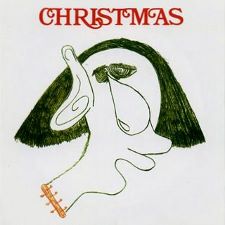
Christmas
Christmas
Paragon

Fludd
...On!
Daffodil
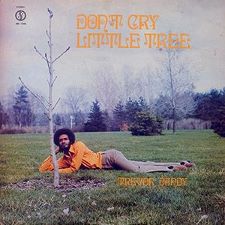
Trevor Dandy
Don't Cry Little Tree
Zaza
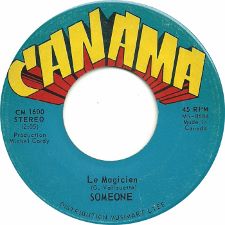
Someone
Le Magicien / Selon le Bible - 7"
Canuma
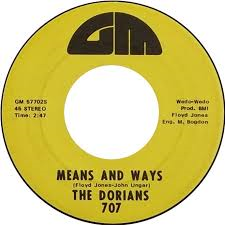
The Dorians
Help for My Waiting / Means and Ways - 7"
GM
|








